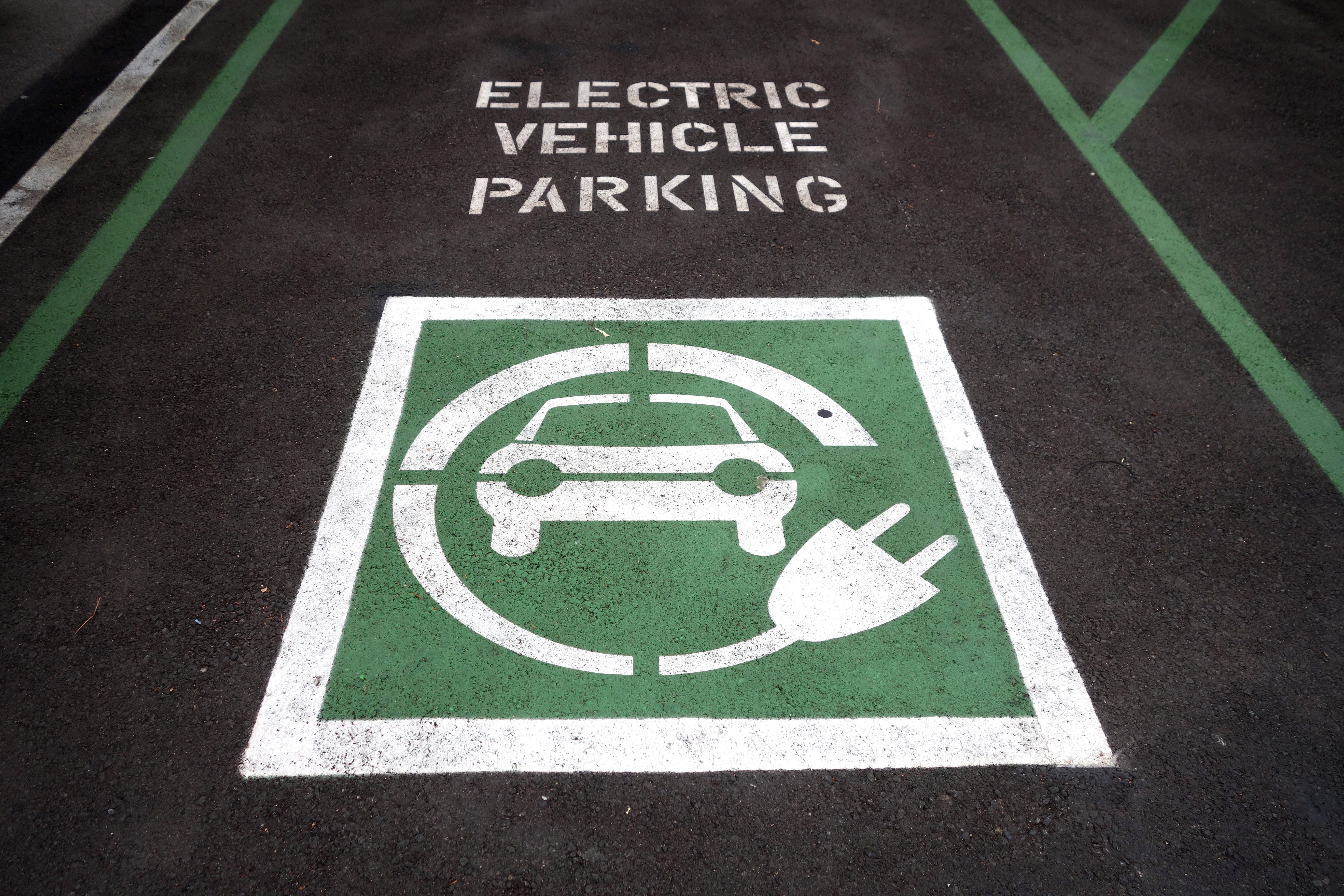The future of autos is electric in Georgia

When the 2021 annual auto issue of Consumer Reports arrived in the mailbox last month, the cover photo of three battery-powered vehicles made one thing clear: The future of automobiles is electric.
After a decade of slow progress, 2021 looks to be the breakout year for electric vehicles — EVs, for short. Battery-powered vehicles are starting to gain traction as manufacturers roll out models that are more enticing to the average consumer.
Nowhere is the electric vehicle revolution
revving up faster than here in Georgia.
Nowhere is the electric vehicle revolution revving up faster than here in Georgia. Local initiatives and incentives are building on automakers’ offerings, eliminating roadblocks to putting more EVs on state highways.
Revving up
Until recently, EV offerings were limited mainly to sedans and small hatchbacks like the Nissan Leaf, which you might have seen Walton EMC employees driving. Now, though, advances in battery technology are helping expand consumer offerings to include the pickups and SUVs we Georgians love — with features our driving habits demand.
In addition to the well-documented environmental benefits and energy-efficiency advantages of EVs, these factors are prompting more Georgians to give the vehicles a look:
- Longer driving ranges Most new models can travel 200 to 300 miles before requiring a charge. Ranges of 500 miles – enough to make three round trips between Athens and downtown Atlanta, with power to spare – are on the horizon.
- Falling prices. In the showroom, electric vehicles still cost more than their gasoline counterparts. But technology is rapidly lowering EV prices and making them competitive with conventional internal combustion engine vehicles. Tesla has announced it will make a $25,000 EV in the next three years by cutting battery costs in half.
- Fuel and maintenance savings. Though it costs more initially, an EV’s fuel and maintenance is substantially cheaper. For instance, the U.S. Department of Energy says electricity to charge an EV is equal to $1 per gallon of gasoline. EVs that are completely battery operated require no oil changes and have fewer moving parts, so they require far less maintenance.
- Tax credit. Some electric car models are eligible for a federal income tax credit of up to $7,500. The credit amount will vary based on the capacity of the battery used to power the vehicle.
As an incentive for making the switch to an EV, Walton EMC
offers a special rate for electric vehicle charging.
- Walton EMC incentive. As an incentive for making the switch to an EV, the co-op offers a special rate for electric vehicle charging, which is lower than the regular electrical rate at certain hours of the day. For details contact Jeff Paul, one of Walton EMC’s residential energy advisors, at memberservices@waltonem.com.
- More public charging stations. Most EVs are charged at home overnight. The growth of the electric vehicle market, plus a state tax credit, is incentivizing more Georgia businesses to install public EV charging stations — making it more convenient for plug-in vehicles to travel longer distances. In addition to hotels and Georgia tourist attractions, you can find charging stations at places like Walgreens in Monroe and the public library in Loganville. Check out PlugShare.com for a map of more locations.
- Lane exemptions. Those who must fight Atlanta commuter traffic will appreciate that an EV displaying the proper alternative fuel license plate may use high-occupancy vehicle and high-occupancy toll lanes, regardless of the number of passengers. There is no charge for using toll lanes. (Note: All electric vehicles are subject to an annual licensing fee plus an extra fee for the alternative fuel license plate in the state of Georgia.)
Plugging in
Though it may be hotter than ever, the EV trend has been on the upswing in Georgia for several years, said Frank Morris, executive director of Clean Cities–Georgia (CC-GA), a program funded through the U.S. Department of Energy to reduce petroleum use in transportation. There are nearly 30,000 EVs registered in the state.
A new project by Clean Cities-Georgia has the goal of doubling
the number of EVs on state roads in just three years.
Morris, an EV driver since 2013, believes Georgia is poised to take a significant leap forward in the adoption of electric vehicles. A new project by CC–GA has the goal of doubling the number of EVs on state roads in just three years.
Georgia is one of 15 states involved in a grassroots project called DRIVE Electric USA. Locally known as Drive Electric Georgia, the project’s initiatives include organizing EV ride and drive events, coordinating Georgia’s participation in National Drive Electric Week and advocating for more public EV charging stations.
Here at Walton EMC, we’re doing our part to put more EVs on the road. We have purchased two Mustang Mach-E cars, Ford’s new EV product. Though we ordered ours months ago, it was exciting to see our EV choice was one of the vehicles featured on the cover of Consumer Reports’ 2021 auto issue. The Mustang, which gets 270 miles per charge, received a positive First Drive review from the magazine.
We look forward to putting these new EVs to work as fleet cars here at the co-op. Look for them out on the road throughout our service area. We’re happy to be a source of information and demonstration about EVs, so don’t hesitate to ask the co-op employee about their electric car experience.
The future is electric, and Walton EMC is charging ahead.
READ MORE Will your next car be an EV?